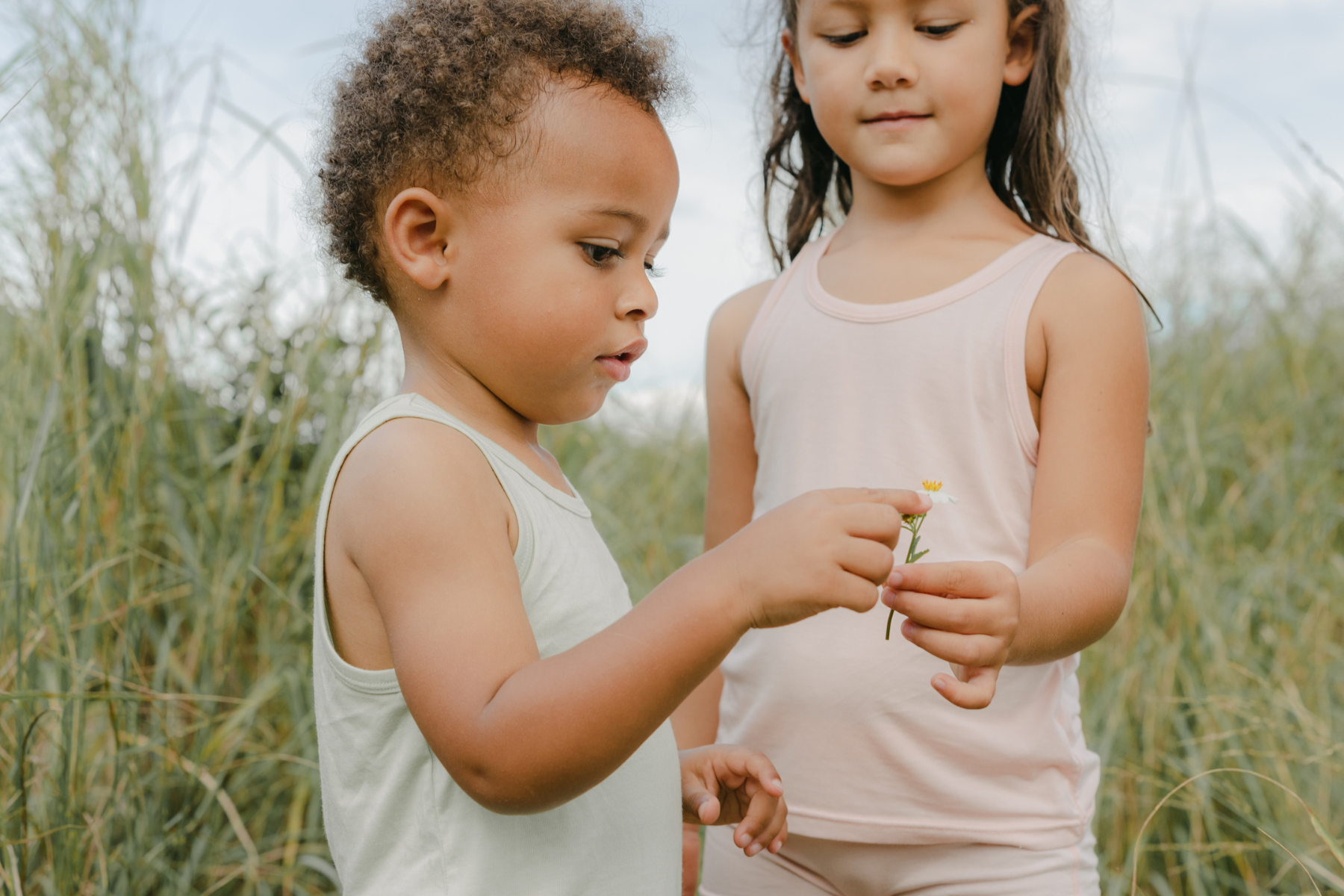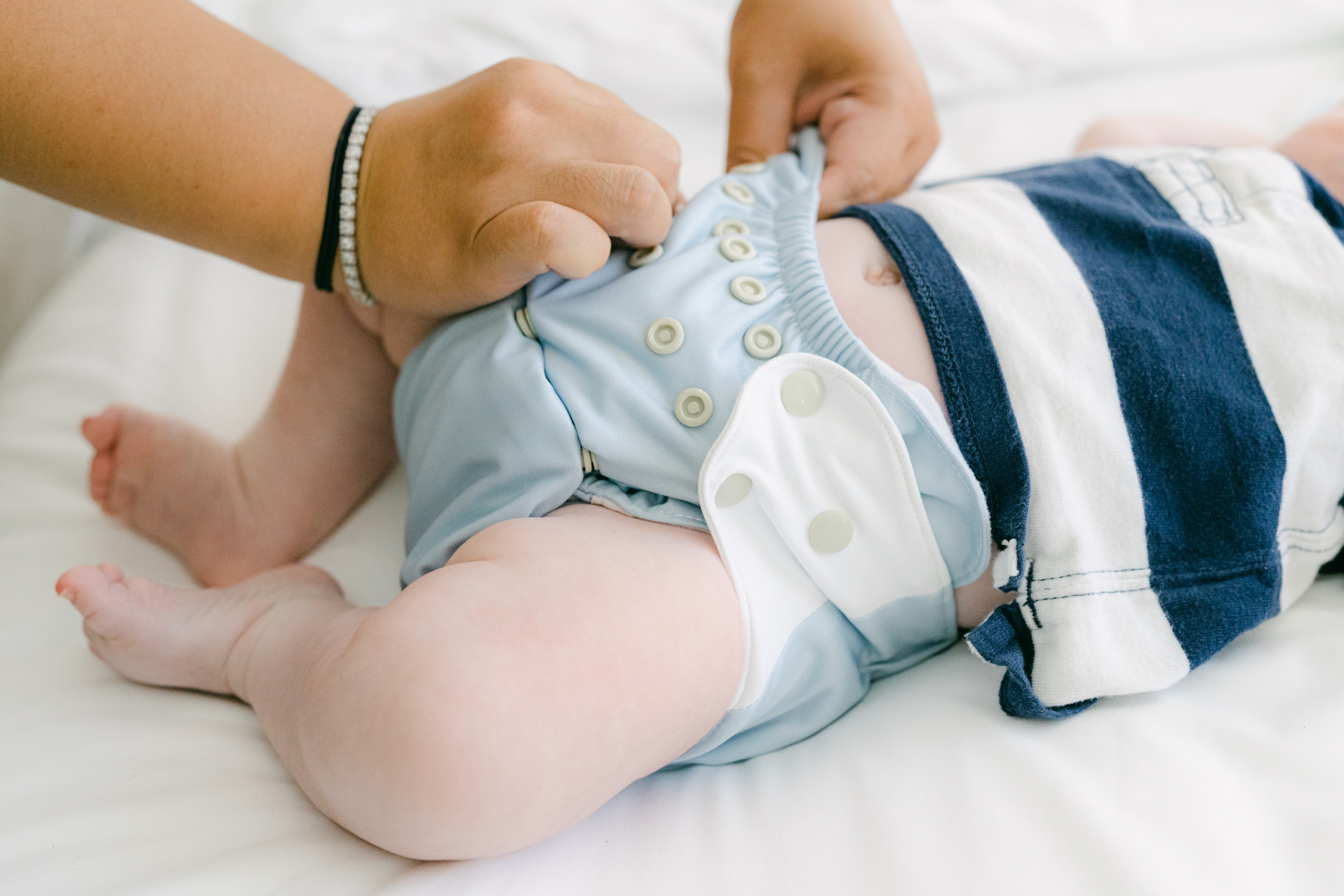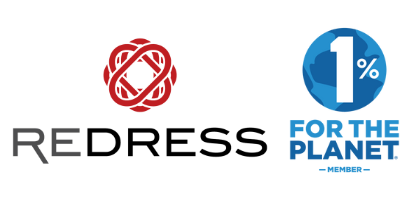We're all about making green choices fun and easy for the whole family. Our story began with a simple goal: to help parents make earth-friendly choices without the fuss. Think ultra-cosy, compostable kids’ underwear, made from FSC-certified TENCEL™ Micro Modal, and reusable diapers that are kind on the earth and soft on your baby bums. We chat with Nissa Cornish, Mom of one and Executive Director from Redress, on how to weave sustainability into the fabric of everyday life.
Redress hosts Get Redressed Month in May. Could you tell us more about the upcoming Get Redressed Month and why it's a pivotal moment for consumers to rethink their fashion choices?
Get Redressed Month has been a highly successful program for Redress, and we're excited to bring it back, bigger and better than ever. At its core, it combines a clothing drive, sorting, redistribution, and awareness-raising campaign. It's pivotal for Redress because we work year-round to engage with the industry and consumers, educating and empowering them about the benefits of shifting to a circular fashion system. This campaign, like many successful nonprofit initiatives, picks a specific time of the year to encourage everyone to focus on their fashion choices. During Get Redressed Month, we run a public campaign across MTR stations and social media, inviting people to reflect on what their clothing means to them and to take better care of their wardrobes. This helps extend the life of their garments, promoting a sustainable approach to fashion.
We also organize a corporate and school clothing drive with over 120 partners participating. At the end of this month-long drive, we host the Sort-a-Thon—a significant three-day sorting event where we typically process between 15 to 20 tonnes of clothing. This fun volunteer activity allows participants from corporate partners to see the impact of the drive and understand the issue of clothing waste in Hong Kong. This multifaceted approach not only raises awareness but also keeps these items out of landfills. Personally, I find the Get Redressed Month campaign extremely rewarding. It has been very popular among corporates as it provides an easy entry point into participating in circular fashion and understanding what that means for us as consumers.

How do you incorporate eco-conscious choices into your family's lifestyle, particularly when it comes to clothing and textiles? What are some ways you teach your son about being sustainable and what it means?
My family is entirely composed of individuals working in the nonprofit sector, focusing primarily on environmental sustainability and conservation. For instance, we always knew we would use cloth diapers for our son, and when it comes to clothing, toys, and other child-related products, we predominantly buy secondhand, unless it's not feasible. Nearly all of my son’s furniture, most of his toys, clothing, school uniforms, and even his bicycle have been purchased secondhand. I believe this is an easy, affordable, and accessible way for people to participate in the circular economy.
Often, people say that there’s a premium on living sustainably, arguing that not everyone can afford to buy organic or support local small businesses. While there may be some truth to this, engaging in the secondhand market is a more sustainable and generally more affordable way to live. This is a practice we’ve wholeheartedly embraced as a family.
In terms of educating my son about sustainability, living on Lantau Island provides a daily connection with nature. Surrounded by a beautiful valley filled with trees and wildlife, we spend time outdoors every day. This exposure has instilled a deep sense of environmental responsibility in him. For instance, he learned to distinguish crickets from grasshoppers even before he could recite the ABCs. We also participate in beach cleanups and remove litter from our local area, reinforcing the idea that everyone is responsible for making a positive impact on the environment, not just for managing their own waste.
Why do you believe it's important for parents to choose eco-friendly underwear for their children?
I think choosing eco-friendly underwear is as important as any other eco-friendly decision a parent makes. It may not change the world, but if it can make a difference, why not pursue it? Eco-friendly materials like organic cotton, bamboo, and TENCEL™ are not only softer and gentler on children's skin, but they are also less likely to contain harmful chemicals. Moreover, there's a common saying in the environmental conservation sector: "It's better to do something than to do nothing." So, if you have two products that are similar in performance, why not choose the more sustainable option and make a difference that way?

Eco-friendly kids’ underwear made with TENCEL Modal
You chose to Cloth Diaper your son. Can you share why you decided to cloth diaper and share more of your cloth diapering journey? What would you say to a new parent who’s considering it?
I've been passionate about this topic for a long time. As soon as I became pregnant, I decided to cloth diaper my son. Plastic or disposable diapers are detrimental to the environment, with millions ending up in landfills where they persist for a very long time. Personally, I also disliked the idea of having my child wear what is essentially a plastic bag full of chemicals next to his sensitive body areas all day. Cloth diapering seemed a more natural choice, avoiding exposure to chemicals from birth.

Cloth diapering is a more natural and cost-effective choice than disposable diapers.
Historically, cloth diapers were the norm until the 1950s when plastics became part of everyday life. They functioned just fine for all intents and purposes. There's also a cost component to consider; cloth diapering can be more economical over time compared to constantly buying disposable diapers. Moreover, cloth diapers are quite appealing—they are soft, comfortable, highly absorbent, and come with cute covers. Working in a fashion nonprofit, I admit the aesthetic appeal was also a factor for me, preferring them over the less attractive look of disposable diapers.
Looking ahead, how do you envision the evolution of sustainable parenting practices, especially in the context of clothing and everyday essentials for children?
Many parents are increasingly concerned about their children's health and well-being, especially regarding the products they use, the clothes they wear, and the food they eat. This consciousness often arises when people become parents, making choices that weren't available to their own parents. This includes opting for organic foods and healthier living choices. For me, becoming a parent intensified my desire to lead a more sustainable life and to leave a healthier planet for my child and his peers.
There's a growing trend among parents, starting from Generation X onwards, to incorporate sustainability into their core values. This shift is particularly evident in how we shop and care for our children, especially in terms of clothing. The secondhand clothing market has become more structured and widespread globally, including in Hong Kong with companies like retitle thriving. Parents are realizing how impractical it is to buy new clothes that a child will outgrow in a few months. This awareness is leading to less wasteful practices.
Parenting is one of the easiest areas to adopt more sustainable solutions. It’s clear to everyone when a child outgrows a sweater that’s still in perfect condition; it simply doesn’t make sense to dispose of it. This shift towards sustainability is already happening, and it's driven by a practical understanding of children's rapid growth and the need for more responsible consumption.
For families who have made the reusable bag and coffee mug swap - what are some other easy swaps or practices that can be impactful?
Speaking as a parent, I've already discussed the benefits of cloth diapering. Although some may not see it as an easy switch, I encourage those considering it to really commit and give it a full try. Many struggle because they start with only one or two cloth diapers, which doesn't make a full laundry load and is hard to manage alongside disposable diapers. Instead, I recommend buying a full drawer of cloth diapers and avoiding disposables for a week. This approach forces you to get into the rhythm and routine of using cloth diapers, and you'll likely find it's not as difficult as you might think. This change can significantly impact our planet positively through our parenting choices.
Another important point is breastfeeding, which is an incredibly effective way to reduce waste and give your child a healthy start, for those who are able to breastfeed. Additionally, an easy swap for reducing impact is opting to buy secondhand items for everything your child needs, from clothes to toys. This not only saves resources but also instills a practice of sustainable living from a young age.
–
Nissa Cornish is the powerhouse leading Redress, promoting sustainable fashion and reducing textile waste. Known for initiatives like Get Redressed Month, an annual campaign aimed at encouraging sustainable clothing consumption in Hong Kong, Redress will host the next Get Redressed Month in May with the 2024 theme "Your Clothes, Our Planet”, inviting consumers to rethink their relationship with clothing and the environment, offering various activities for corporates, schools, and individuals to participate in promoting long-term sustainable habits. Find out more: Redress.com.hk
Just Peachy supports Redress through the 1% for the Planet initiative, reinforcing its commitment to reducing fashion waste. Learn more about Just Peachy's partnership with Redress.


